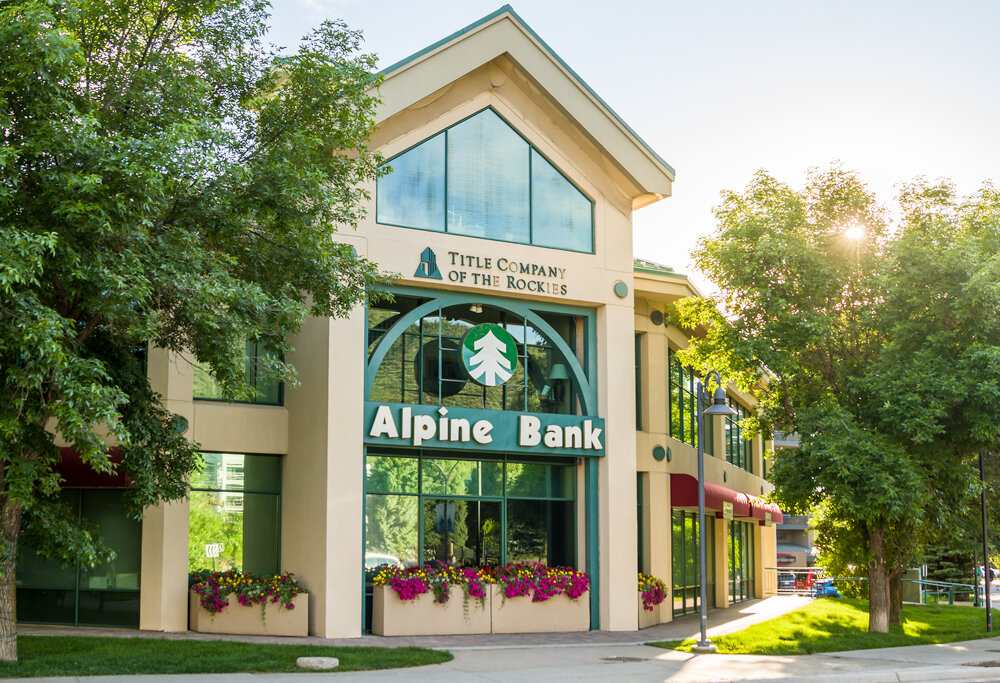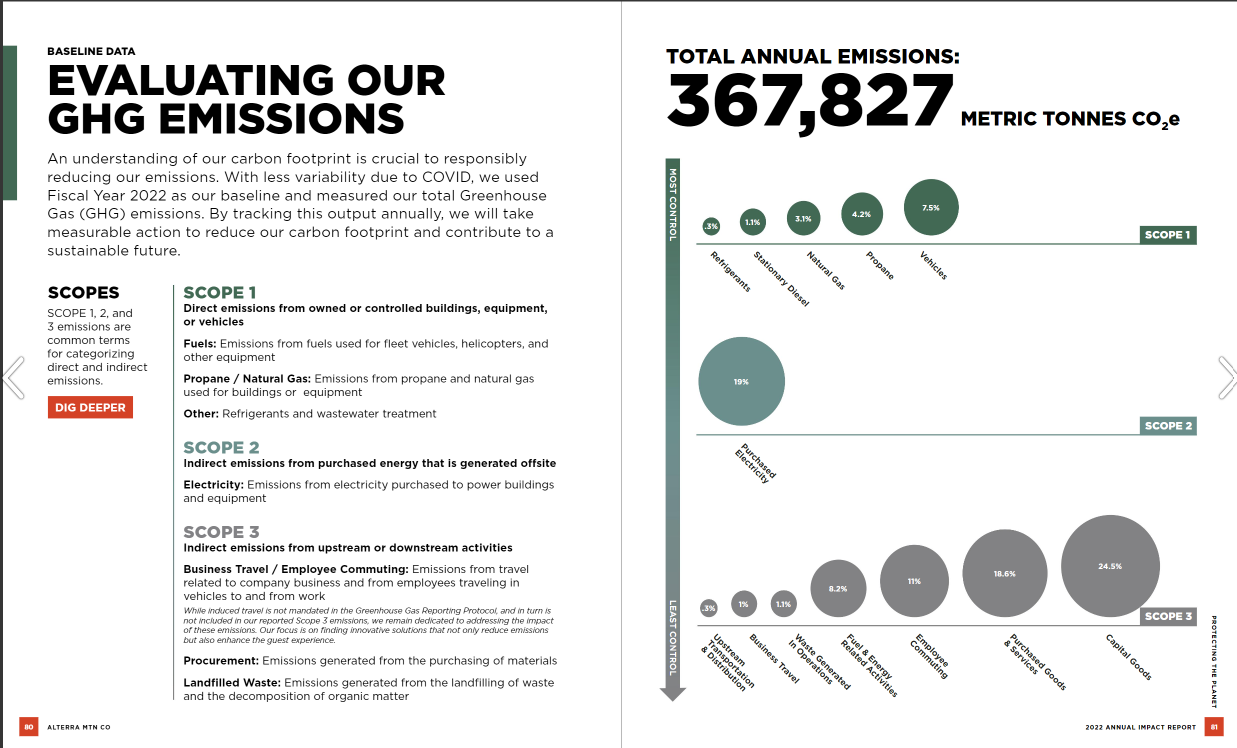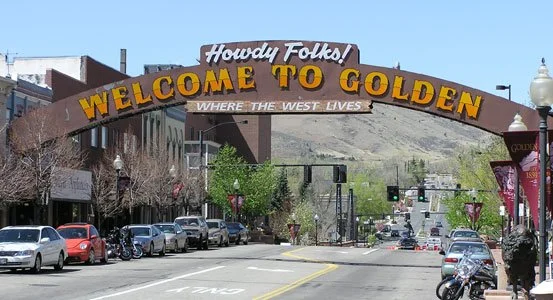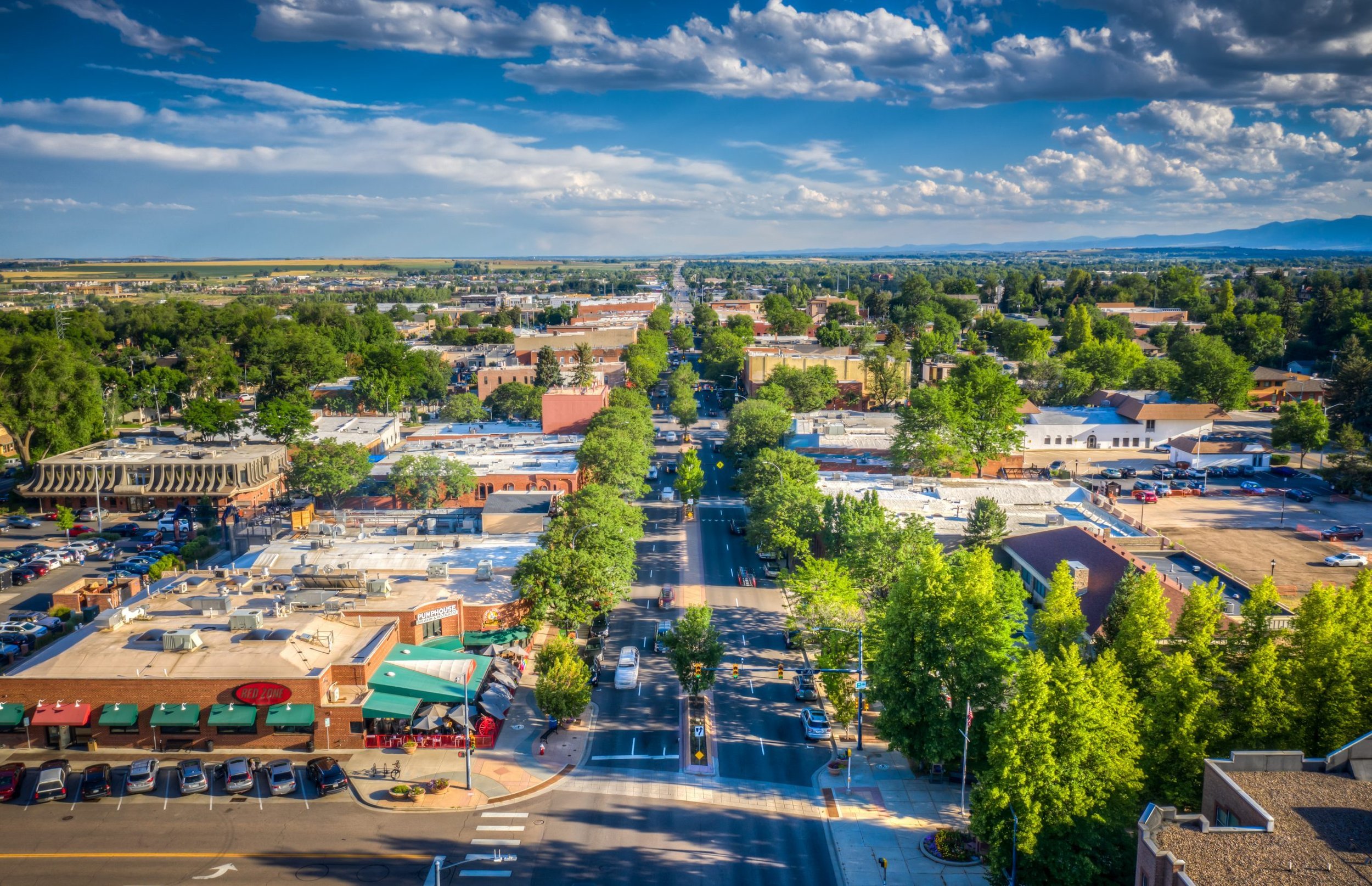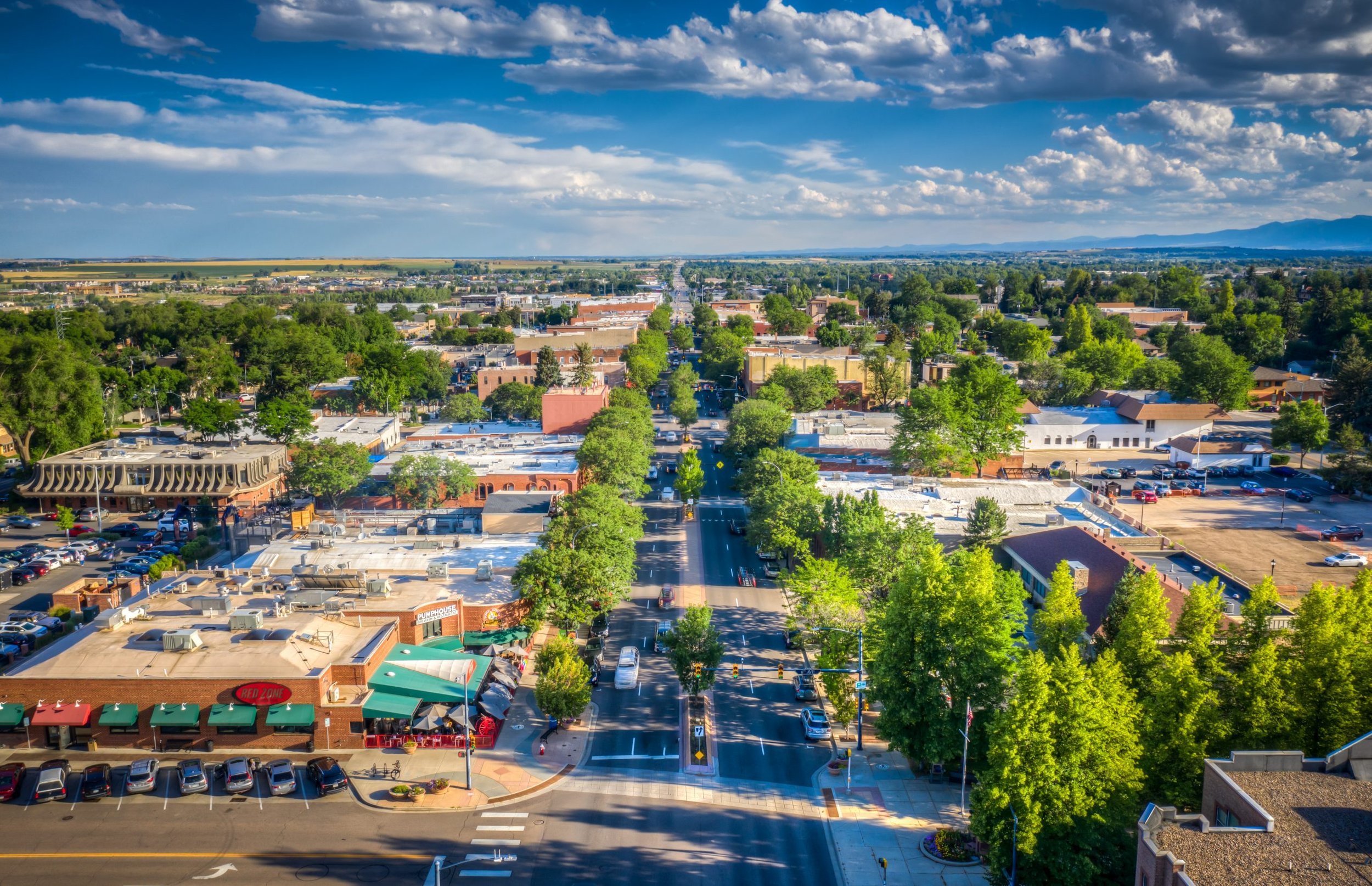Dubuque, Iowa | GHG Inventory and BAU Project
GHG Inventory and BAU Project
Lotus worked with the City of Dubuque to estimate the city’s 2022 community-wide greenhouse gas emissions. The city was looking for a consultant to verify their inventory and methodology as it had been done previously by student volunteers at the University of Northern Iowa. Lotus compared previous inventories to the standard GPC protocol and was able to suggest new emissions sources that can be included in the inventory and also wrote an inventory management plan so city staff can update the inventory workbook in the future. Lotus also updated the City’s business-as-usual model with the latest emissions and projections. The project was capped off with a presentation to the Dubuque City Council and a final report.
Denver International Airport | Net Zero Emissions Plan
Net Zero Emissions Plan
Lotus completed a full QA/QC analysis of all past DEN greenhouse gas inventories. This work cumulated in a deeper understanding of recent reductions and increases in emissions and the creation of a process improvement plan to identify gaps and improve data collection. Alongside this work, Lotus completed research and interviewed staff to identify gaps, opportunities, and current and future successes. The result was a list of recommended strategies (High Impact Actions) to achieve our proposed science-based targets including:
Identifying possible activities and associated emissions reductions.
Identifying potential barriers including such as estimated costs; awareness/attitudes; countervailing priorities/projects; technology/scale limitations; areas outside of DEN control (Electric supply limitations); and areas where DEN has partial control (vendors).
Identifying potential tailwinds such as policy and regulatory changes; funding Increases; grant opportunities; partnerships; and City and County of Denver initiatives.
City of Bozeman | GHG Inventory, Infographic, and Report
GHG Inventory, Infographic, and Report
Lotus developed Bozeman’s 2020 community GHG inventory and developed an inventory management plan for the City’s new Sustainability Associate. Lotus also presented the results of the inventory in person to the City’s Sustainability Board and trained the Bozeman team on how to update the inventory workbook in future years. Additionally, Lotus created a final report that described the results of the inventory, trends between the baseline year (2008) and the 2020 inventory, and results from an analysis of the average annual carbon sequestration of the city’s lands using the LEARN tool from ICLEI. Lotus also developed an infographic for the City to use when communicating the results of the inventory with residents and important stakeholders.
Park City, Utah | Community GHG Inventories
Community GHG Inventories
Lotus first worked with Park City in 2017 to create the City’s 2016 community-wide greenhouse gas emissions inventory. Lotus later worked with the City again in 2022 to develop follow up inventories for calendar years 2020 and 2021. The Global Protocol for Community Greenhouse Gas Emissions Inventories (GPC) was utilized to complete all inventories.
Mission, Kansas | Community-Wide and Municipal GHG Emissions Inventories; Climate Action Task Force Facilitation
Community-Wide and Municipal GHG Emissions Inventories; Climate Action Task Force Facilitation
Lotus worked with the City of Mission, Kansas to complete the City’s 2022 community-wide and municipal operations greenhouse gas emissions inventories. Additionally, Lotus was tasked with creating inventory management plans for each inventory for the City to use in updating the inventories in future years. Lotus summarized the results of both inventories in a final report and developed a Storymap to communicate the results of the inventories to the wider community. Rachel also presented the results to the City Council and helped facilitate a community meeting aimed at gathering input from community members about sustainability efforts in the City and greater Kansas City region.
Additionally, Mission contracted with Lotus to help assist the newly hired City Administrator with updates to the greenhouse gas emissions inventories as well as to facilitate the City’s Climate Action Plan Task Force. The Task Force is charged with helping City officials to prioritize and implement actions within the City’s climate action plan. Lotus facilitated 4 meetings with the Task Force and assisted the Task Force in developing a Prioritization Matrix for the City’s climate action strategies.
Deer Valley Resort | Climate Action Plan
Climate Action Plan
Lotus partnered with Deer Valley Resort to develop a climate action plan for their resort operations. The Deer Valley Climate Action Plan will help the resort address their operational carbon footprint, prioritize implementation strategies, and clearly communicate their climate action commitments to their visitors and staff. Lotus’s approach walked the client through the crafting of a set of prioritization metrics through which the resort can assess its next steps: from proactively addressing climate risks to tackling critical opportunities in their infrastructure to empowering staff to solve problems.
Lotus’s expertise in adapting climate plans to fit a specific culture, environment, and circumstance shines in this resort climate action plan. The scope of work includes workshops with the Senior Leadership Team, focus groups and informational interviews with staff, a site visit to meet with all resort departments, a business-as-usual emissions forecast, climate adaptation and mitigation strategies, and a designed climate action plan document.
Alpine Bank | Annual Sustainability Audit
Annual sustainability audit
Lotus has been collaborating with Alpine Bank since 2014 to help maintain and update Alpine Bank’s Utility Tracking Database on an annual basis, calculate emissions from facilities, and normalize energy use for the weather.
Lotus performs a quality check on Alpine Bank’s energy and water use tracking spreadsheet. The tracking spreadsheet has records of monthly electricity, natural gas, and water usage at all of Alpine Bank’s locations across the state of Colorado. Once a quality check is completed, Lotus reviews the results and errors found with the project team at Alpine Bank. Finally, Lotus writes a section reviewing the emissions and activity data trends across the organization to be included in the annual report.
“Hillary was tasked with creating a new Excel-based tool that empowered Alpine Bank’s energy managers to normalize energy data for weather from 2006 moving forward. The tool, which was designed to complement our internal energy tracking spreadsheet system, not only enables us to better understand our energy usage across our 38 locations but also helps us meet ISO 14001 goals, the results of which are published in our annual Environment Report. We continue to rely on Hillary as a key technical resource for various Alpine Bank sustainability initiatives. We highly recommend Lotus’s services for comparable projects.”
Alterra Mountain Company | GHG Inventory and Sustainability Strategies
GHG Inventory and Sustainability Strategies
Lotus developed greenhouse gas inventories for the 16 resorts owned by Alterra, Canadian Mountain Holidays, Alpine Aerotech, and Alterra’s Denver headquarters. Included in this was a detailed analysis of the emissions impact of visitor travel to the resorts. Lotus partnered with McKinstry to develop specific climate action strategies and an interactive Storymap detailing the results and recommendations. Lotus is currently updating the induced travel analysis for the latest fiscal year.
“Alterra Mountain Company is one company of many unique brands, and Lotus embraced the challenge of working effectively within our organizational structure. For each destination in the Alterra portfolio, the Lotus Team developed custom greenhouse gas inventories and inventory management plans using diverse data inputs. They synthesized complex data sets into manageable workflows that could be easily explained and replicated year over year. Guided by the incredible body of work from Lotus, we have been able to prioritize data-based actions that maintain the unique character of each destination and community, advance climate action policy, and aggressively reduce emissions. We are incredibly grateful to work with the Lotus Team and highly recommend them to other clients, especially those with complex operations.”
Boulder County | Net Zero Codes Cohort
Lotus provided project management and facilitation for the Boulder County Net Zero Codes Cohort, later renamed to the Northwest Metropolitan Regional Energy Code Cohort. The project included two phases: the first reviewed and adopted the 2021 International Energy Conservation Code (IECC) with regional consistent strengthening amendments, and the second created a regional roadmap for reaching 100% net zero new construction by 2030.
Phase 1
For Phase 1 of the project, Lotus facilitated a series of five meetings with eight community partners in the Northwest Metropolitan region of Denver to co-create consistent energy code amendments that could be adopted alongside the 2021 IECC to support local and regional climate goals. Equity, GHG reductions, and the needs of individual communities were discussed within the cohort while the group reached a consensus for the recommended code package. Phase 1 included code package development along with individualized community support to help each partner community with their code adoption process. Lotus worked with consultant partners Southwest Energy Efficiency Project (SWEEP) and Shums Coda throughout the project to develop the code package for the region along with supporting materials such as fact sheets, customized presentations, training materials, and other individualized support requested by each community. Lotus and the consultant team attended council meetings and study sessions with staff to ensure the code package was understood and could be adopted by each leadership council. The results of Phase 1 code adoptions for the region can be seen in the table to the left (as of February 2023).
Phase 2
Phase 2 of the project began the summer of 2022 with a goal of creating a roadmap of ranked local, achievable, affordable, and equitable policies and strategies to reach the goal of net zero new construction by 2030 for the region. For Phase 2, Lotus facilitated a series of eight meetings with ten communities to co-create a regional definition of “net zero new construction,” as well as a roadmap with a stepped approach to achieving net zero new construction by 2030. Equity and regional collaboration were strong themes throughout the discussions and the roadmap. The roadmap was written and designed by Lotus, with support from SWEEP and Shums Coda, and lays a foundation for continued regional coordination on future building code updates for each community involved.
The Boulder County Net Zero Code Cohort was funded by a Department of Local Affairs grant and created a framework in the state for regional collaboration on building codes which has been deployed in other areas of Colorado to support local communities with building code adoption.
City of Boulder | City of Boulder Annual GHG Emissions Inventories (Community and Municipal)
City of Boulder Annual GHG Emissions Inventories (Community and Municipal)
Lotus completed the City of Boulder’s community and municipal GHG inventories in 2012, and from 2015 through 2022. Since 2016, Lotus has been preparing the city of Boulder’s community GPC-compliant greenhouse gas emissions inventories. Lotus develops community and municipal GHG inventories in separate Excel-based tools which include information regarding data sources, documentation of calculation methodology, and easy-to-digest data visualizations communicating inventory results. Lotus also writes final reports for the community and municipal inventories for Boulder. Lotus updates the inventories each year and in 2018, started updating the municipal GHG emission inventories. In 2018, Lotus also provided the city with an infographic describing the results of the city’s 2018 GHG emissions inventory for use by the city’s residents.
The 2023 inventory work is currently underway.
New 2023 GHG inventory results published in Winter 2024 report that Boulder achieved an impressive 24% reduction in GHG emissions since 2018. The community continues to see declining GHG emissions as they make progress towards a resilient and sustainable future. The City’s GHG emissions reduction work has been highlighted by the press:: City of Boulder News, CBS News, Daily Camera Press Release.
“The Lotus team are greenhouse gas accounting wizards! The City of Boulder has been working with Lotus on our community and municipal GHG inventories for multiple years now, and we are endlessly impressed by the engaging, knowledgeable, helpful, and reliable team that always delivers on quality, accuracy, and customer service. The Lotus team is such a pleasure to work with and their passion and commitment to the work is evident, always seeking to find solutions to meet unique needs or requests as they arise.”
City of Colorado Springs | Sustainable COS Plan
Lotus supported the development of Colorado Springs’ first Sustainability Action Plan. This data-driven and community-focused planning effort involved the integration of the City’s first community-wide and municipal greenhouse gas emissions inventories, the analysis of current and past planning efforts in the City and region, and the engagement of a wide network of Colorado Springs’ staff, stakeholders, and partners to identify measurable and actionable strategies and actions that the City can take to enhance sustainability across the community. Equity considerations were woven throughout the process, with specific strategies and actions focused on improving access to resources and forthcoming development opportunities in disproportionately impacted communities across Colorado Springs. The final plan will be a graphically designed document that informs the City and its partners on the work to be done over the next 5-10 years. In 2023 Lotus will be completing emissions strategy modeling to determine the greenhouse gas emissions impact of the strategies within the Sustainability Action Plan.
The Sustainability Action Plan focuses on ten sustainability elements:
Equity
Agriculture and Food Availability
Natural Environment, including ecological health, water, and air quality
Built Environment
Energy
Materials Management
Transportation
Economic Development
Health and Well-Being
Arts and Culture.
Lotus facilitated focus groups for each of the 10 elements to help draft the narrative that will be integrated into the City’s Plan.
City of Louisville | Commercial Energy Code Review
The City of Louisville contracted with Lotus and Group14 Engineering to explore updates to the City’s current commercial energy code that would help the City reach its energy efficiency and greenhouse gas reduction goals. The City and consultant team examined commercial energy code policy options including higher efficiency requirements, all-electric requirements, and net zero requirements. The scope of work included:
Energy modeling of current code-compliant heating, ventilation, and air conditioning systems in commercial and industrial building types to evaluate upfront cost, operational cost, and greenhouse gas (GHG) emissions. The energy modeling also included an analysis of the total solar PV required to make code-compliant buildings (both mixed-fuel and all-electric) net zero. Finally, energy modeling was conducted to analyze the upfront cost, operational cost, and GHG emissions savings of buildings built to a higher efficiency performance standard.
Research on existing commercial energy code policies from around the country.
A public engagement process that solicited feedback on commercial code policy options via two City board meetings, two open-house style community meetings, and an online public engagement survey.
Final report summarizing the policy recommendations from the consultant team and staff for the City of Louisville’s commercial code update.
Lotus facilitated the public engagement process, developed the final policy recommendation report, and presented the final policy recommendation to City Council for adoption. We are well-versed in the analysis of various commercial code options that will allow a community to move easily to a net zero code standard.
City of Commerce City | Sustainability Action Plan
Lotus led the development of sustainability and community health recommendations that are woven into the first Sustainability Action Plan for Commerce City, Colorado. An environmental justice priority community, the City wished to ensure that recommendations were derived from community input and informed by data. Lotus facilitated a citizen-led Environmental Policy Advisory Committee to develop recommendations that will result in a healthier, more sustainable community. Additional community outreach occurred in the form of community meetings, civic engagement training, a community survey, and workshops with City staff and business and industry leaders. As part of the process, Lotus also completed the City’s first GHG inventory and business-as-usual forecast, modeling the GHG impact of strategies, identified the cost impacts of strategies and funding resources, and met with City staff to develop internal sustainability recommendations. Subcontractors on the project analyzed and made recommendations specific to air and water quality issues in Commerce City, which were woven into the full recommendations report.
In addition to completing the City’s first community-wide greenhouse gas emissions inventory as a part of the Sustainability Action Plan development, Lotus developed the City’s first municipal operations greenhouse gas emissions inventory. Lotus utilized the Local Government Operations Protocol to complete the inventory. The development of this inventory will help the City government create and monitor sustainability actions outlined in the Sustainability Action Plan. Lotus continued supporting the Commerce City Department of Energy, Equity and the Environment with facilitation of the Environmental Policy Advisory Committee and designing program collateral for one year after the plan was finalized.
“Commerce City unanimously passed a Sustainability Action Plan which was the culmination of input from multiple community and business meetings. Lotus was instrumental in facilitating the process as well as preparing technical documents such as an Air Modeling Threshold Report; Greenhouse Gas Inventory and Stormwater Management Plan. The Sustainability Action Plan was translated into Spanish for increased stakeholder engagement. Lotus has provided outstanding service””
City of Golden | Codes Consulting: Building Policy Roadmap
Lotus developed the City of Golden’s Code Roadmap after the completion of the City of Golden Code Consulting Project as a joint effort with Iconergy Ltd. The roadmap lays out the recommendations and timelines to address greenhouse gas emissions and energy efficiency in the City of Golden’s built environment, with the ultimate goal of helping to achieve the City’s 2030 Sustainability Goals. The recommendations for new and existing buildings were informed by a series of stakeholder workshops which included industry experts, sector representatives, and consultants that evaluated a total of six code packages from January to July 2022. Lotus was the primary facilitator for each stakeholder workshop and worked with the group to review code standards the City could consider to meet its building goals.
The final recommendation for building code and existing building policy, derived from the stakeholder process, included the following high-level directives.
For new buildings, adopt the 2021 IECC and the New Buildings Institute (NBI): All-Electric Code Overlay with a requirement for onsite PV for new residential construction.
For existing buildings, develop a building benchmarking program and subsequent performance standard for existing buildings and address code and incentive gaps for existing buildings with expanded programming and incentive opportunities.
The Lotus team facilitated the stakeholder workshops and provided technical assistance in analyzing code packages, GHG emissions, and strategic planning to meet Golden’s GHG reduction goals.
City of Las Cruces | Climate Action Plan
Lotus completed the City of Las Cruces’ 2018 GHG inventory and supported the development of GHG strategies to reduce emissions to 80 percent of 2018 levels by 2050. This work included the development of both a community and municipal inventory, in-person and remote stakeholder facilitation for two workshops to select GHG reduction strategies with a focus on equity and resilience, high-level modeling of strategy impacts, and drafting the final plan.
The inventory and strategies will help the City to understand its carbon footprint, identify and implement ways to reduce its carbon footprint, gain community buy-in, and inform future policy and programs.
In 2024, Las Cruces contracted with Lotus to update the City’s business-as-usual GHG emissions model as well as to complete calendar year 2023 greenhouse emissions inventories for the community and local government operations.
“The Council was so impressed with Lotus’ work - the report, the strength of the data, and the equity-centered approach. I will be putting forward the 9 strategies, targets, and co-benefits to adopt as a resolution. The actions in the CAP will be used as a foundation for deeper dives so I can get even more community involvement”
City of Longmont | GHG and Related Projects
Lotus has worked on multiple projects with the City of Longmont:
To support the City’s commitment to regularly update their greenhouse gas emissions (GHG) findings, Lotus completed a GHG inventory for the City in 2016. Lotus has calculated Longmont’s greenhouse gas (GHG) emissions inventories since 2018. Lotus built upon this work again in 2019 for an updated inventory, as well as modeling for new construction building electrification.
In 2023, Lotus worked with Longmont to write and design a GHG memo that not only told the story of the data, but also connected it to other sustainability efforts at the City. The memo was designed to captivate and inform a diverse audience. Lotus worked with the City to make the document accessible for all readers.
Lotus is currently working on updating and simplifying the current GHG reduction strategy model with more recent emissions factors, data inputs, and updated targets that align with the City’s Climate Action Recommendations Report and the recent transportation plan.
City of Longmont | Electrification Study and Communication Plan
Lotus convened and guided an Electrification Feasibility Committee to explore advantages and constraints of electrification policies and program options for the City of Longmont. Lotus also created a communications strategy and the development of a thoughtful, equitable, and phased beneficial building electrification plan that was both ambitious and realistic. Strategy development was supported by modeling completed by Group14 Engineering. The final Beneficial Electrification Plan provides Longmont with a roadmap of specific strategies and actions that can be taken to spur investment in electrification throughout the community.
Colorado Clean Energy Fund | Impact Evaluation Tool and Tool Updates
Lotus conducted an evaluation to understand the impacts of Colorado Clean Energy Fund (CCEF) funded projects on reaching the fund’s goals of mitigating climate change, advancing environmental and economic justice, and creating a healthier and more resilient Colorado. Lotus identified key impact metrics for CCEF including energy generation and use, greenhouse gas emissions reductions, cost savings, and equity metrics. These metrics were incorporated into an interactive evaluation tool which calculates impacts for individual projects and all projects together. The tool was developed to allow CCEF to enter any new projects and estimate energy impacts of different project types such as energy efficiency, equipment electrification, and electric vehicle charging infrastructure.
Lotus also provided recommendations for improving data collection to ensure CCEF can continue to measure project impacts for all future projects.
Lotus worked with CCEF to update the evaluation tool to account for new residential programs offered by CCEF. This work entailed developing an API connection between CCEF’s customer relationship management system (Zoho) and the evaluation tool. This connection allows CCEF to import large numbers of residential projects into the tool without the need for manual data entry. Lotus then created program specific impact calculations that aligned with the metrics created in the original tool. The resulting updates allow CCEF to quickly import large batches of projects to the evaluation tool and automatically calculate impact metrics for all projects.
“The Lotus Engineering & Sustainability team developed a comprehensive, easy-to-use impact measurement tool for the Colorado Clean Energy Fund (CCEF). The entire engagement with Lotus was well-organized and cost effective, and we were amazed by how sophisticated the end product was. Thanks to the tireless effort by the team at Lotus, CCEF is now able to efficiently track and calculate its economic, environmental, and social impact across its portfolio. CCEF could not have achieved this without the help of Lotus!”
Colorado Energy Office | Building Performance Standard Task Force Facilitation
Lotus facilitated monthly meetings with the State of Colorado Building Performance Standard (BPS) Task Force and ensured that the Task Force remained focused on the equitable impacts of the BPS on communities, building owners (especially for affordable housing), and Colorado’s workforce. Through the Task Force meetings, Lotus guided the task force through technical discussions and decisions and brought forward data to support decision-making. Lotus also completed an analysis of available benchmarking data to guide the Task Force conversations from a technical perspective, as well as designed a Public Engagement Plan and process that included a focus on gathering input from representatives across the State that can speak to the equity and workforce impacts of the BPS.
The Public Engagement Plan guided the outreach and engagement activities that were used to gather input from a broad network of stakeholders and interested parties from outside the Task Force. This included identifying the key audiences and ways to engage them, the community and business organizations that would be able to funnel input from their members, and developing a survey, public outreach materials, and designing and supporting the facilitation of three public engagement sessions.
The Task Force recommended that the State include a holistic approach to implementing the BPS that includes creating programs that would provide support and resources for the Colorado workforce, and to assess equity concerns for tenants, disproportionately impacted communities, and others who may be adversely impacted by the BPS requirements. Lotus then worked with the Colorado Energy Office to design an Equity Priority Building Approach. Lotus’s recommendations reflect the integration of an equity lens with BPS and ensure the ongoing clean energy transition is accessible to all. This means considering the community, the building itself, and the building’s occupants, as well as how to reduce the burden imposed by the State BPS program and the risk of displacement or gentrification. Important in this equity approach is giving building owners a voice in the process by allowing a building to self-identify as an EPB.
Colorado Energy Office | Energy Code Board
Lotus contracted with the Colorado Energy Office (CEO) to facilitate the State’s Energy Code Board to create a Model Electric and Solar Ready code for the State of Colorado. A House Bill passed in the State’s legislature in 2022 requiring the Energy Office to convene an Energy Code Board with diverse representatives from across the state to develop a model code to be the new state minimum code in conjunction with the 2021 International Energy Conservation Code.
Lotus managed the code development process and facilitated the Energy Code Board (board), and an executive committee through a series of 18 meetings to discuss, deliberate, and finalize each code element within the State’s model code. Lotus conducted research on existing electric-ready, solar-ready, and EV-ready codes in the State, drafted the code elements for board review, facilitated an ongoing public engagement process that culminated in a live public comment session, and wrote the final Model code for the State based on the outputs of the facilitated process. Cost-effectiveness was a critical component of the readiness code discussions and Lotus pulled and summarized reports for the board to advance their understanding of the upfront and retrofit costs for electrification, EV charging, and solar installations. Finally, Lotus executed a voting process for all board members that was efficient and transparent to the public and produced the final code package for the State.
Lotus wrote the State’s Model Electric and Solar Ready Code, which is an immediately adoptable code standard for Colorado communities. In addition, Lotus developed an explanatory code package to help guide communities through the review and adoption of the code, and a final code report to provide an overview of the process and key elements of the Model code. Throughout the process, Lotus maintained strict adherence to the Colorado Open Records Act as well as, timeline and procedural requirements mandated by the House Bill.
“I truly can’t find the words to express how much I appreciate the work you all have put into this project over the past several months. I know that there have been a number of late nights and weekends spent on this project (as well as just long days in general!) and I want you to know how much it meant to me, and CEO broadly, knowing I had all of you that I could trust to get everything done well and on time while I was trying to juggle what felt like a million other things. I can’t tell you how many compliments I received from Board members, other CEO and agency staff, and members of the public on the incredible job you guys did managing this wild process and keeping the Board on track to meet its goals and deadlines. Seriously, it was a lot. So I just wanted to say thank you again for everything, and I look forward to getting everything done in the coming couple of months! This code is a pretty monumental step forward for Colorado and will have a lasting impact that we can all be very proud of. ”














